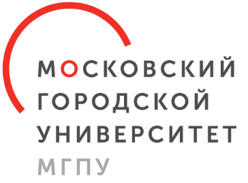Online modules for teachers
Development and implementation of innovative customised modular programmes for supplementary vocational training for teachers and employees of Russian schools abroad in the sphere of educational techniques for improvement of digital literacy of school students, cross-functional competencies and skills of the XXI century

The project is aimed at development of competencies of employees at Russian schools abroad in the sphere of educational techniques for improvement of digital literacy of school students, and cross-functional competencies and skills of the XXI century.
The program includes a mandatory intramural module ”Techniques for building skills of the XXI century in school students (an overview of the best teaching practices)” –16 hours and 10 optional online modules:
- Developing Critical Thinking in School Students Under Digital Education Conditions,
- Conditions and Techniques for Creativity Development,
- Building Life Skills Under Conditions of Uncertainty in Students of Educational Institutions,
- Effective Communication and Productive Cooperation Techniques,
- development of Emotional Intelligence in Students,
- Big Data Basics,
- Media Literacy of Students,
- Information Security in Digital Environment,
- Development of Social and Educational Self-Management and Educational Autonomy Skills in Children,
- Development of Cognitive Skills in Students (Technologies and Tools).
An online broadcast will be arranged for school employees who have no access to online learning. Subject to the evaluation results, each school employee will be able to design a customised programme for supplementary vocational training with a duration of 32-90 hours and use it for learning.
During the course, the participants will get an insight into the educational practices, learn how to use the tools to form a developmental environment for successful education, improve digital literacy and skills of the XXI century, and how to shape individual educational paths for students subject to their individual abilities and education gaps.



